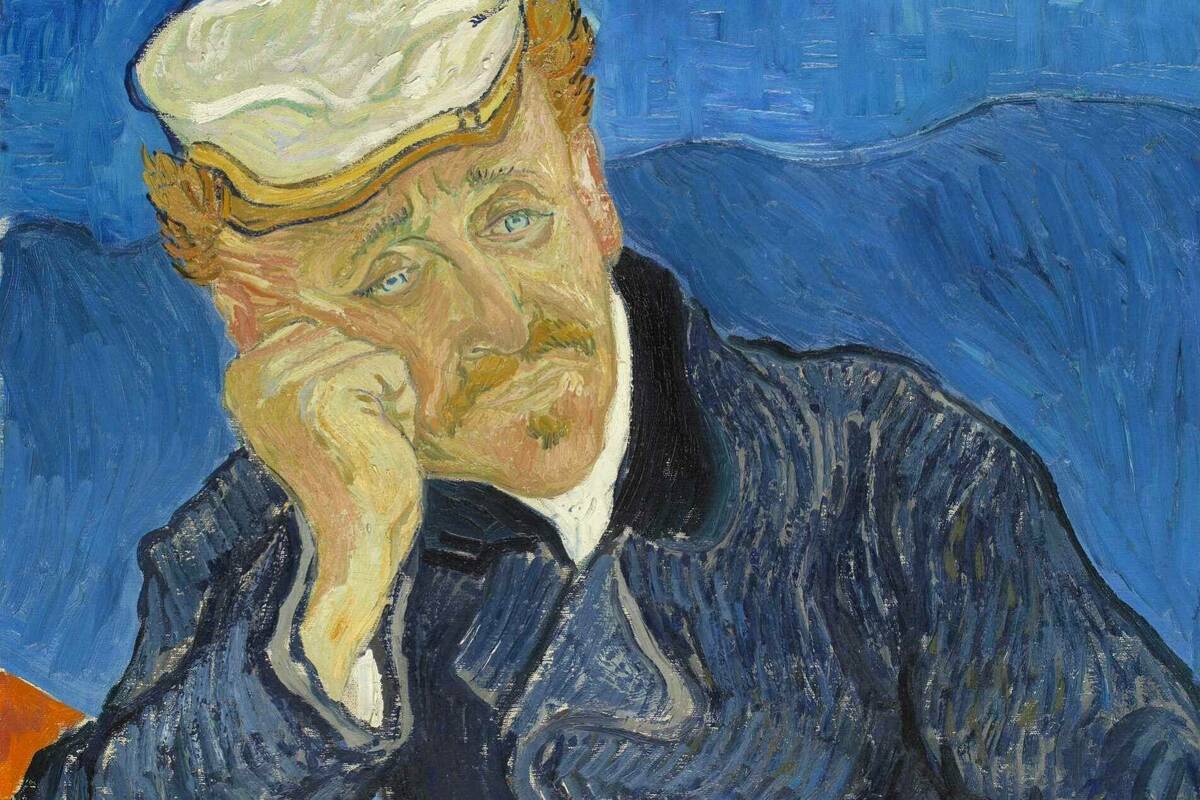I recently completed my tenth year of teaching at a small Christian liberal arts college in the Midwest. It has been a rich and fulfilling time: eager students, congenial colleagues, worthwhile publications, meaningful work in and out of the classroom, and recognition for the good things I have done. I have been tenured, promoted to associate then full professor, and given a reasonable salary so that I can support my wife and six children. In addition, I live in a charming family-oriented town, attend a solid parish, and am blessed with good friends. Professionally and personally, I have attained most of the good things one could realistically hope for in this life. One would think that contentment would reign supreme. Yet I find myself more restless than ever.
So it was with existential interest that I picked up Benjamin and Jenna Silber Storey’s Why We Are Restless: On the Modern Quest for Contentment where they attempt to lay bare the origins of our modern discontent by chronicling the thought of four great French thinkers: Montaigne, Pascal, Rousseau, and Tocqueville. Initially I was skeptical of their approach which struck me as somewhat parochial. But soon this skepticism melted away as I realized these French thinkers had our number or, perhaps more accurately, they gave us our number. Spanning the sixteenth to the nineteenth century, these four thinkers held an ongoing conversation about the meaning of happiness and where we can find it. The boundaries of their discussion have set the terms for how we think about happiness today. And, according to the Storeys, these thinkers have bequeathed to us a peculiarly modern form of restlessness.
Montaigne sets our story in motion. An aristocrat who lived through the bloody and often cruel religious wars in France, Montaigne attempted to radically rethink what it means to be human. Pushing back both against the inherited forms of his aristocratic birth and the fanaticism he witnessed among his Catholic and Protestant countrymen, Montaigne tried to carve out a private space of delight in simply living. Humans are not ordered toward a transcendent ideal worth dying for—or worse, killing for—but are ordered toward the here and now and the good things of this life. The inherited forms and formalities of a stratified society did not need to determine our roles and ways of being; rather, we can craft an identity based on the things we love. The life we put together is not completely private, however, but is on display for others to admire. Part of enjoying this life is the approbation of others.
Montaigne paints the ideal life as the balanced life, where we do not strive to become something more than we are (a hero, a saint, a sage) but a human being who does a variety of human things in a human way. The ideal life is one of immanent contentment, crafted from the pursuit of the good things of this life: reading, writing, walking in the garden, traveling, listening to a good sermon, marrying and having children, visiting your mistress, conversing with friends, and so on. This is not a life of hedonism or gross indulgence. For Montaigne, the good life balances the pleasures of mind and body, solitary, and social life. It is human and humane, where all things are enjoyed in moderation: not too much, but also not too little. Montaigne elevates the virtue of “nonchalance,” in which no one pleasure was to be pursued exclusively or too seriously, but all were to be held lightly and in balance.
Montaigne’s reorientation of life from the transcendent to the immanent, from the public and religious to the private, took hold in seventeenth century France, where the gentleman with moderate gentlemanly interests and opinions was held up as the ideal. In service to France’s rich and powerful, the Jesuits worked to baptize this way of life. The young genius Pascal, though, was having none of it. According to Pascal, the Jesuits suggested that the life of diversion and moral mediocrity was compatible with the Gospel. In his Provincial Letters, Pascal takes these compromised Jesuits to the woodshed. The Gospel of Montaigne has nothing in common with the Gospel of Christ. Moral laxity and gentlemanly pursuits cannot pave the way to heaven. Rather, we must take up our cross and follow the radical demands of Jesus.
Pascal argues that beneath the nonchalance and seemingly balanced life of immanent contentment lurks something darker. While charming on the outside, Montaignian immanence masks a deeper discontent, even, Pascal says, an enmity toward ourselves and others. The more we seek to be happy in this life, the more unhappy we become. Pace Montaigne, the life of immanent contentment is not a truly human life. We are made for more. We are self-transcending creatures who cannot find any lasting happiness in this life. We must order our lives toward the next life. Anyone who says otherwise is selling you a bill of goods.
In the following century, Rousseau tries to find a middle way between Montaigne and Pascal. Rousseau thinks Pascal is right: underneath the charming veneer of genteel society there seethes not only restlessness, but often a boiling cauldron lust, malice, and hatred. Society is corrupt to the core and corrupts all who come into contact with it. Yet, Rousseau also agrees with Montaigne: happiness is immanent contentment and must be sought in this life.
Rousseau tries numerous ways of envisioning, and living, this life of immanent contentment: the public life of the citizen whose life is integrated by his devotion to the common good; the private family life kept scrupulously away from corrupt society; the bucolic life of the secular hermit who communes with nature. Rousseau’s own experiments here are telling. He abandons public life before he gets started. He falls madly in love with a woman (disrupting his peace of mind), whom he eventually marries, giving him five children, all of whom they place in an orphanage. Finally, Rousseau exiles himself to a friend’s private residence where he fills his days walking aimlessly, daydreaming, and cataloguing his regrets. Despite his eloquent treatises, Rousseau’s own life indicates that theories of immanent contentment ultimately fail in practice.
Tocqueville visited America in the 1830s as a sympathetic outsider who could more clearly see the assumptions, invisible to us, that governed our American way of life. On Tocqueville’s account, Americans have made Montaigne’s vision a national way of life. We take it as self-evident that every person has an inalienable right to pursue happiness, generally understood as maximizing the good things of life for the greatest number of people. This is in our DNA. Notwithstanding the profound injustices toward African and Native Americans, America has generally made good on this vision: more people than in any time in the history of humanity have enjoyed lives of prosperity, health, social mobility, meaningful work, material well-being, travel, hobbies, and access to the good things of this life.
Yet, this Montaignian national aspiration comes at a price. While Americans can attain almost anything they desire—within reason and if they work hard—they find themselves perpetually restless, worried about their recently acquired goods, and increasingly unhappy. Mobility and social mobility are prerequisites for attaining these Montaignian ideals on a national level, for we must be free to pursue our fortunes wherever we are likely to succeed. We take it for granted that we should sever—or at least seriously attenuate—the ties of family, friends, and place for the sake of pursuing our goals.
This national habit compounds the American disposition to be suspicious of the past. While Montaigne felt the urgent need to create some space for individuality amidst the weight of inherited forms and formalities, we Americans have almost no inheritance to guide us. We face the daunting prospect of making it all up as we go along. Often with no family nearby, no friends intimate enough, and no neighbors we trust, we Americans find ourselves alone and lonely with nothing but our bootstraps to rely on. We strive for the immanent contentment Montaigne envisioned, but the ghost of Pascal haunts our efforts.
Why We Are Restless provides a compelling origin story of our contemporary restlessness. It also illuminated my own situation. The Storeys’ book revealed to me a dimension of myself that I was not entirely aware of before. I of course knew I was American, something I always felt acutely when traveling abroad. But the book made me aware that I was American in orientation in ways that moved contrary to my conscious convictions. Like Pascal, I am an Augustinian who believes our hearts are restless until they rest in God. I believe that immanent contentment is an illusion and, though we can delight in God’s good gifts, no true and lasting happiness can be found in this life. Why We Are Restless showed me that even though these are my convictions, I hold these convictions as an American, a modern fish who swims in Montaignian waters.
I realized I had another unarticulated conviction: not only should I pursue happiness, but I have an inalienable right to be happy. My current life situation, which is a portrait of immanent contentment, has recently failed to satisfy me. Instinctively, I experienced this change as an almost personal affront to my rights. My reflexive response to this affront was to prepare to seek my happiness elsewhere where the conditions would be more favorable.
This book made me know myself better, but it also made me realize that, to move forward, we need to give Pascal his due. This perhaps is why I found the book’s conclusion, “Liberal Education and the Art of Choosing,” somewhat disappointing. The Storeys propose that a liberal arts education means being formed in the arts of choosing. This, they suggest, is one way we might ameliorate our current restlessness. By reading old books, we can learn to choose better, ranking the goods of life in a way that will dissipate us less. This is right, as far as it goes, but if Tocqueville was right that we Americans live in Montaigne’s world, then our choosing and ranking occurs within a horizon of immanent contentment, leading only to more restlessness and deeper unhappiness.
Even if the art of choosing includes the possibility choosing Pascal, I doubt a liberal arts education could get us there. To really choose Pascal, we must not choose but submit, and not to Pascal but to Pascal’s God and the Church he gave us. It would require a radical relativizing of the temporal goods which are presented to us as the ultimate aim of life. We might be able to enjoy some of these things, but only if we seek first the kingdom and its righteousness.
While we do need to be educated in the arts of choosing (but seriously, which universities are up to the task?), I worry this advice concedes too much to the Montaignian framework. I suspect the Storeys know this. In the final line of the Acknowledgements, which providentially comes at the end of the book, the Storeys hint at a truer way forward than the one offered in the Conclusion. After thanking numerous colleagues, the Storeys thank their parents and lastly their three children who “remind us that love, not accomplishment, is the proper purpose of living and that grace, not merit, is our ultimate source and end.” If the Acknowledgements are right, and I think they are, then immanent happiness is not our goal, Love is. And a liberal education cannot get us there. The grace which created us and gives us our end is also needed to order our loves aright. And the properly ordered love we experience here gives us a foretaste of the happiness we seek and, if we submit to it, will give us true happiness forever.


